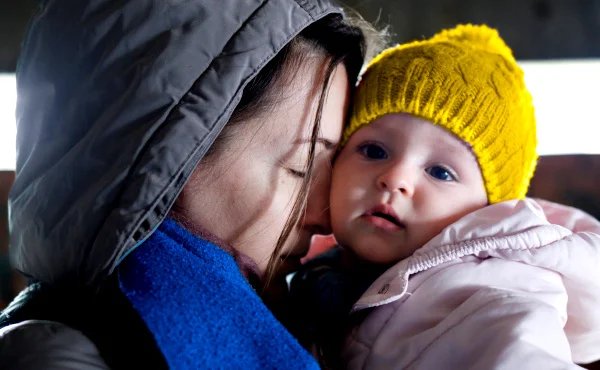“When the municipality called to ask us if we were willing to receive two Ukrainian families, we didn’t hesitate a second,” says Blanca Vives, director of the Hohewand Activities Center in Dreistetten (Austria). This residence is used mainly for activities of Christian formation organized by people in Opus Dei.
A few hours after that call, two Ukrainian mothers, both named Olga, arrived with their children. “Their only luggage was the backpack each one was carrying, nothing more. The children came up and hugged us; they were so happy,” says Blanca. “They were also exhausted. Very, very tired. At the same time they were relieved and deeply grateful.”
The two mothers are friends and their children’s names are Anja (16 years old), Timeo (11), and Sacha (11). Their homes are in Saporischja, a city with 760,000 inhabitants 120 miles from the besieged port city of Mariupol and over 1,000 miles from Vienna (Austria).
A week ago the center of the city was set ablaze. Their husbands stayed behind to fight while the women and children fled through Poland and Slovakia to Austria. They have said very little about their experiences while fleeing. “They must have suffered a great deal, especially since they had to leave behind their husbands. But right from the first day they asked us how they could help out,” says Blanca Vives. “And they taught us our first word in Ukrainian: ‘Simyie’, which means ‘family’.”
Less baggage, more people
When the mayor asked the town near the conference center if any neighbors might be willing to receive families, “we said yes right away,” Silvia Pichler recounts. “Everything happened very quickly. In 24 hours Olga, her friend Olga and their three children were with us. Each one had a small backpack, since that was all they were allowed to carry. The less baggage on the train, the more people who would be able to squeeze on, the conductors told them. “Life is more important than luggage.”
Other people in the town were also eager to help. Sandra, mother of three children, offered her home right away. “Now we are going to play with the two Ukrainian 11 year-olds. Maybe we can help the children forget the horror they have left behind, by helping them to become children again,” Silvia says. Another friend from town brought over clothing for Anja, who is 16. “Of course I want to help out,” she said.

The people of Opus Dei at Hohewand conference center have experience in providing humanitarian assistance. “We helped care for Syrian families during the refugee crisis in 2015,” Silvia recalls. The contact was made through the AMAL Association in Vienna. Its president, Gordian Gudenus, the father of a family, is a member of Opus Dei. Gordian himself is now looking after a Ukrainian-Syrian family in a refugee camp in Lower Austria, and is trying to help them overcome some bureaucratic obstacles.
“The father is Syrian, the mother Ukrainian. It’s hard to imagine what it means to have to flee twice from a war zone,” Gordian says. Since 2016, the AMAL Association has helped more than 700 refugees from the Middle East to settle in Vienna and Lower Austria. “We will try to use our knowledge and experience to confront this new crisis,” Gudenus says.
And what is the next step for the two Ukrainian families now staying in Hohewand? “We hope that the two youngest children may soon start going to school. Anja said that she is very eager to attend a music school,” Silvia says. One of the mothers asked how long they can stay there. “They are very worried. We told them they can stay a day, a month, a year… however long they need, because the most important thing is that they are all right.”
